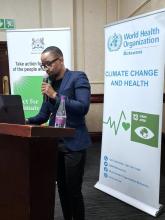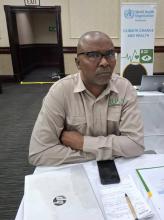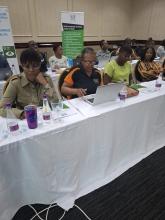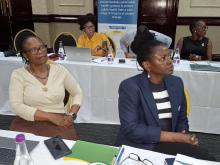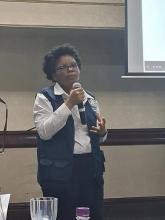Botswana undertakes Health Vulnerability and Adaptation Assessment: A move towards a resilient health system on impacts of climate change
The Government of Botswana conducted a Climate Change Health Vulnerability and Adaptation Assessment in selected districts to identify high-risk areas and vulnerable populations affected by climate change. The objective was to strengthen the country’s health sector to effectively and efficiently respond to climate-related impacts.
The assessment report, based on climate scenarios, provides evidence that Botswana is highly vulnerable to climate change. It highlights that key economic sectors will face increasing risks unless effective adaptation and mitigation measures are implemented. The report also underscores the impact of climate change on health through multiple pathways, including extreme weather events, air pollution, food insecurity, and the spread of waterborne and climate-sensitive diseases. These challenges are expected to place growing pressure on the health system, necessitating urgent action. The findings offer a critical baseline for monitoring changes in disease risks, outbreaks, and preventive measures while strengthening the understanding of the linkages between climate change and health.
These insights will play a key role in enhancing Botswana’s health system by informing policies and guiding the development of the National Health Adaptation Plan (H-NAP). With seed funding from the Wellcome Trust, WHO’s country office recruited a consultant to assess both current and projected climate change impacts on health, malnutrition, and disease burden in Botswana. The assessment examined direct effects, environmentally mediated impacts, and socially mediated influences using available data. It also analyzed health system vulnerabilities, adaptation capacities, and at-risk populations, with a focus on children, gender, and equity. The methodology included a desk review of data, policies, guidelines, and standard operating procedures (SOPs) from the Ministry of Health and other key sectors. Additionally, field visits were conducted to health facilities in the selected districts, where health workers were interviewed.
On December 10, 2024, WHO provided technical and financial support to the Ministry of Health to convene key stakeholders, partners, and the Vulnerability & Adaptation (V&A) Steering Committee for a consultation and consensus-building meeting. During this session, the consultant presented the draft assessment report, and stakeholders provided comments and recommendations that further strengthened the findings. Participants included experts from academia (University of Botswana and Botswana Agricultural College), research institutions (Okavango Research Institute), and key representatives from the Ministry of Health, Department of Meteorological Services, Ministry of Agriculture, Ministry of Local Government, and Statistics Botswana. Additionally, the Red Cross and various community-based organizations (CBOs) were represented.

